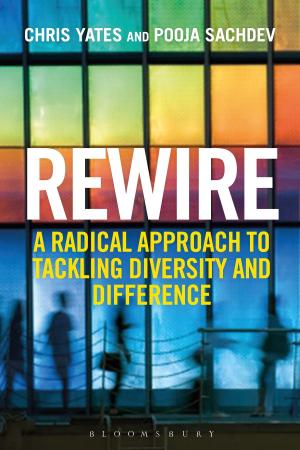Mapping Multiple Literacies
An Introduction to Deleuzian Literacy Studies
Nonfiction, Reference & Language, Education & Teaching, Educational Theory, Philosophy & Social Aspects, Teaching, Teaching Methods| Author: | Professor Diana Masny, Dr David R. Cole | ISBN: | 9781441157683 |
| Publisher: | Bloomsbury Publishing | Publication: | June 14, 2012 |
| Imprint: | Continuum | Language: | English |
| Author: | Professor Diana Masny, Dr David R. Cole |
| ISBN: | 9781441157683 |
| Publisher: | Bloomsbury Publishing |
| Publication: | June 14, 2012 |
| Imprint: | Continuum |
| Language: | English |
Mapping
Multiple Literacies
brings together the latest theory and research in the fields of literacy study
and European philosophy, Multiple Literacies Theory (MLT) and the philosophical
work of Gilles Deleuze. It frames the process of becoming literate as a fluid
process involving multiple modes of presentation, and explains these processes
in terms of making maps of our social lives and ways of doing things together.
For Deleuze, language acquisition is a social activityof which we are a part, but only one part
amongst many others..
Masny and Cole draw on Deleuze's thinking to expand the repertoires of literacy
research and understanding. They outline how we can understand literacy as a
social activity and map the ways in which becoming literate may take hold and
transform communities. The chapters in this book weave together theory, data
and practice to open up a creative new area of literacy studies and to provoke
vigorous debate about the sociology of literacy.
Mapping
Multiple Literacies
brings together the latest theory and research in the fields of literacy study
and European philosophy, Multiple Literacies Theory (MLT) and the philosophical
work of Gilles Deleuze. It frames the process of becoming literate as a fluid
process involving multiple modes of presentation, and explains these processes
in terms of making maps of our social lives and ways of doing things together.
For Deleuze, language acquisition is a social activityof which we are a part, but only one part
amongst many others..
Masny and Cole draw on Deleuze's thinking to expand the repertoires of literacy
research and understanding. They outline how we can understand literacy as a
social activity and map the ways in which becoming literate may take hold and
transform communities. The chapters in this book weave together theory, data
and practice to open up a creative new area of literacy studies and to provoke
vigorous debate about the sociology of literacy.















